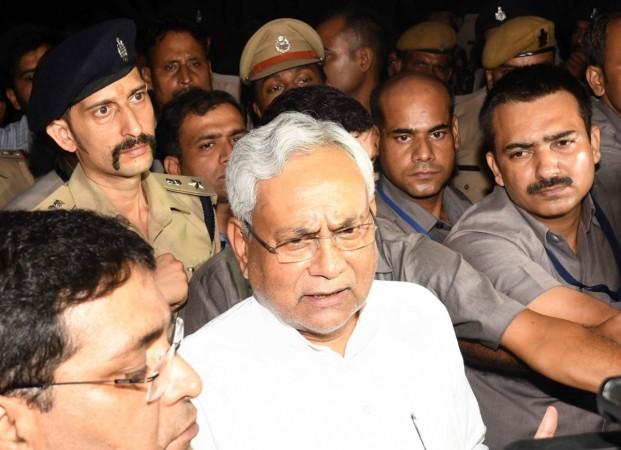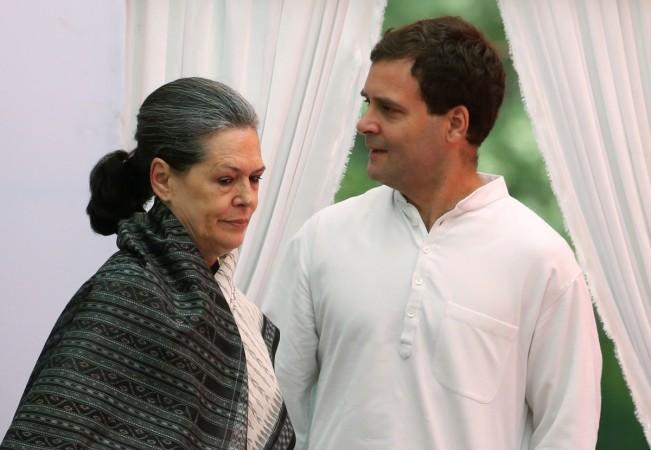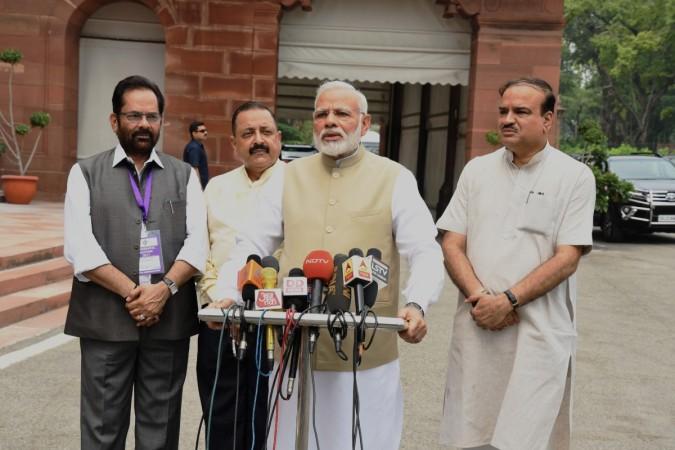
Bihar Chief Minister Nitish Kumar reiterated the fact on Monday, July 31, that four years are indeed a long time in politics. In 2013, the JD(U) chief had vehemently opposed Narendra Modi's rise to become the prime ministerial candidate of the National Democratic Alliance (NDA), saying the country needed a "secular" face to lead it. But as Modi's rise went unhindered, an exasperated Nitish found no other choice but sever a 17-year-old relation with the BJP-led alliance. The Lok Sabha election that followed in 2014 was a forgetful affair for the Bihar chief minister and after getting drubbed in his home state, Nitish gave up the chief minister's seat in favour of an unknown Jitan Ram Majhi.
It seemed Nitish was resolute over his fight with the "communal forces" when he entered into an alliance with old foe Lalu Prasad for the 2015 elections in Bihar. The grand alliance, as it was known to be, humiliated the NDA in the elections and the Opposition felt boosted, thinking that Modi was not as invincible as he had looked a year ago.
But the developments in mid-2017 have dashed all hopes the Opposition has been harbouring. Nitish Kumar responded to his "conscience's call" and dumped the RJD to accept the BJP's support again. Five days after staging the drama, Kumar said not a single soul stands a chance against Modi in the 2019 Lok Sabha elections.
The verdict of Nitish Kumar, a complete reverse to what he had argued in 2013, is huge. It actually has a lot of implications for Indian politics.
#1 End of communal versus secular debate
The very first significance of Kumar's remark is that the debate of the communal versus secular is virtually over now. Nitish was seen as the secularists' answer to Modi when the two were chief ministers of Bihar and Gujarat, respectively. The two CMs were compared on several occasions and when Nitish had pulled out of the NDA on the question of secularism, it was believed that he would be one of the pillars of the anti-Modi platform.
Now, that stands demolished and also with it, the idea that Modi no longer is seen as a communal figure. His emergence as a statesman is complete now and the confirmation has come from none other than one of his fiercest former rivals.
#2 Congress and Gandhis have been nullified

The second significance of the Bihar chief minister's remark is that it nullifies the Congress and its leadership for the future. If Modi wins another election, he will be the first non-Congress leader to get 10 years in office and the first powerful prime minister after Jawaharlal Nehru and Indira Gandhi to have such duration.
Yes, Manmohan Singh also served a decade but he was certainly not a powerful premier and was overshadowed by the Gandhis. The way Modi has neutralised anti-incumbency in the first three years of his rule, one suspects he could even lengthen his stay in power beyond a decade and that could deal a body blow to the Congress and the Nehru-Gandhi legacy.
#3 Idea of federal front demolished
The third importance of Kumar's remark is that he quashed the very idea of federal front, to which leaders like Mamata Banerjee, Rahul Gandhi, Arvind Kejriwal and Lalu Prasad were hoping to give a final touch before the next big battle. Nitish could be the closest to Modi in terms of electoral appeal but now his departure means the Opposition's chances are seriously dented. We will hear noises from its ranks time and again but it will not make much of a difference in the end.
#4 It's the individual over party

The fourth significance of the JD(U) chief's opinion is the reiteration of an individual over the party. Even during the days of Atal Behari Vajpayee, a popular prime minister that India had, it was BJP or 'Bhajpa' which was mentioned over the premier.
During the days of MMS as well, the analysts took the name of the Congress more than any indivodual, not even Sonia Gandhi, who was seen as the actual power centre. But Kumar has made it clear that it is the individual in Narendra Modi who has the edge, not the BJP. This is a clear Indirafication of our times. One will not be surprised if Modi alone helps the BJP break the Congress's record of 1984 when the sympathy wave had seen it grab over 400 seats in the Lok Sabha. Congress MP Shashi Tharoor speaks in favour of a presidential system in India time and again but ours is no less than an individual-centric system at the moment.
#5 Nitish Kumar's political future is at lesser risk now
Fifth and finally, Nitish Kumar's prophecy secures his own political future. Had he continued with the old arrangement of the secular pitted against the 'communal', he would have been a sure loser. Now, with his alignment with the ruling party at the Centre, Nitish Kumar widens his options and lengthens his career.
He can not only extract benefits from the Centre for his own state but also can migrate to the position of say, the deputy prime minister, even if it means little compared to the actual executive post. As Aristotle had advised one to bring down his desires to his/her present means, Nitish Kumar has understood the reality check and is aiming for the second position, understanding very well that the first position is now out of reach.














